All Stories
-
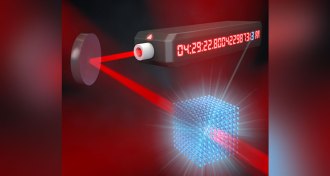 Tech
TechNew atomic clock is most precise yet
This next-gen atomic clock ticks at a steady beat, but time will tell just how well it tells time.
-
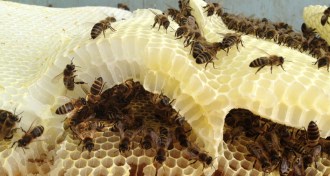 Agriculture
AgricultureMuch of the world’s honey now contains bee-harming pesticides
A controversial group of chemicals called neonicotinoids has a global impact, tests of honey samples show.
-
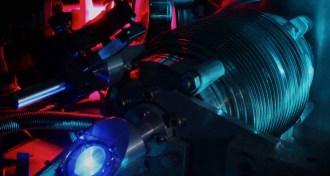 Physics
PhysicsProton size still perplexes despite a new measurement
Study of hydrogen atoms supports the case for a smaller proton.
-
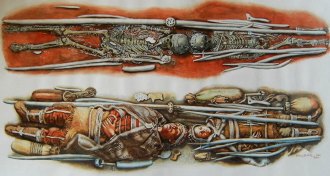 Genetics
GeneticsAncient humans avoided inbreeding by networking
Ancient DNA expands foragers’ social, mating networks.
By Bruce Bower -
 Health & Medicine
Health & MedicineParenting advice gets a fact-check
A new website called Parentifact attempts to fight parenting misinformation.
-
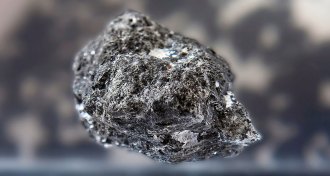 Astronomy
Astronomy50 years ago, a spacecraft discovered oxygen in moon rocks
In 1967, scientists dreamed of lunar processing plants to turn moon rocks into oxygen.
By Kyle Plantz -
 Chemistry
ChemistryChemistry Nobel Prize goes to 3-D snapshots of life’s atomic details
An imaging technique that gives up-close 3-D views of proteins is honored in this year's chemistry Nobel Prize.
By Carolyn Gramling and Laurel Hamers -
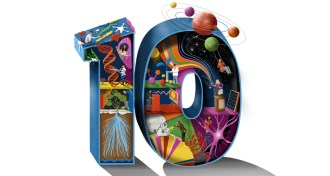 Science & Society
Science & SocietyThe SN 10: Meet the scientists ready to transform their fields
In this year’s SN 10, meet early- and mid-career research stars who are coming up with and testing new ideas in astronomy, archaeology, artificial intelligence and more.
-
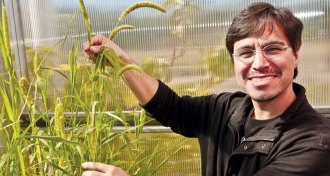 Plants
PlantsJosé Dinneny rethinks how plants hunt for water
Plant biologist José Dinneny probes the very beginnings of root development, which may have important implications for growing food in a changing climate.
By Susan Milius -
 Physics
PhysicsJennifer Dionne harnesses light to illuminate nano landscapes
Nanophotonics research by materials scientist Jennifer Dionne could lead to improved drugs, cancer tests or invisibility cloaks.
-
 Computing
ComputingM. Ehsan Hoque develops digital helpers that teach social skills
Computer scientist M. Ehsan Hoque programs emotionally attuned assistants that bring people together.
By Bruce Bower -
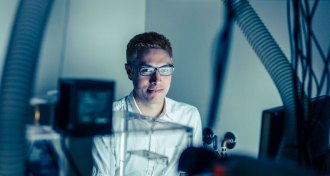 Life
LifeKC Huang probes basic questions of bacterial life
A physicist by training, Kerwyn Casey Huang tries to understand cell shape, movement and growth.